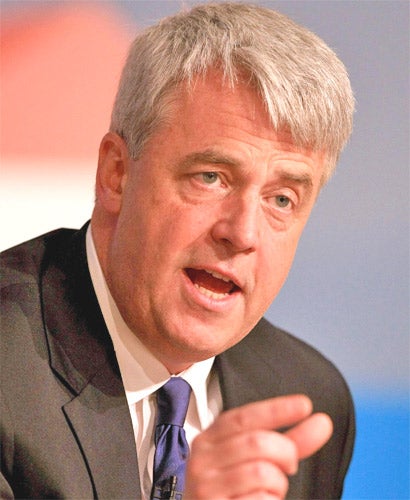'A train crash': the NHS's verdict on the Coalition's health reforms

Your support helps us to tell the story
From reproductive rights to climate change to Big Tech, The Independent is on the ground when the story is developing. Whether it's investigating the financials of Elon Musk's pro-Trump PAC or producing our latest documentary, 'The A Word', which shines a light on the American women fighting for reproductive rights, we know how important it is to parse out the facts from the messaging.
At such a critical moment in US history, we need reporters on the ground. Your donation allows us to keep sending journalists to speak to both sides of the story.
The Independent is trusted by Americans across the entire political spectrum. And unlike many other quality news outlets, we choose not to lock Americans out of our reporting and analysis with paywalls. We believe quality journalism should be available to everyone, paid for by those who can afford it.
Your support makes all the difference.Senior figures from across the health service have warned ministers that the NHS faces a "train crash" and could "implode" over the pace of the Government's reform plans.
The Health Secretary Andrew Lansley will publish details today on how the Government intends to manage the process by which GPs will begin to take over the commissioning of patient care from primary care trusts (PCTs).
But doctors, health economists, managers and a former Conservative health secretary have warned that the proposals are going too far, too fast. They have also warned that ministers are running a high-risk strategy with their plans to abolish PCTs, which are responsible for making sure that the NHS sticks to its £80bn budget. Robert Creighton, the head of Ealing PCT, told a conference that no one at the moment was "thinking about patient care or anything else". He said that it was hard to focus on the job when the Government had effectively told staff that "everything [we have been doing] is bad, poor, unsuccessful and should be destroyed". He added that the NHS was "at risk of blowing it seriously" and it could be "a bloody awful train crash. It could collapse".
Meanwhile, a study by the think-tank Civitas published today warns that the change could effect patient care. It says it is "very uncertain" that the wholesale abolition of PCTs by 2013, in favour of groups of GPs, will bring about significantly improved commissioning in the short, medium or long term.
The reports concludes: "The Coalition Government needs to stop repeating the mistakes of the past by mandating wholesale structural change. Instead, it should seek to build on the best of what currently exists in NHS."
David Nicholson, the NHS chief executive, admitted at a hearing before the Health Select Committee that primary care trusts were in "meltdown", as more than 2,000 managers have already taken redundancy packages, and PCTs in London and elsewhere were having to cluster together under a single management in order to remain viable.
His remarks echoed those of the British Medical Association, which represents doctors and the Royal College of GPs (RCGP). In its response to the Government's NHS White Paper, the BMA said: "We are extremely alarmed at the potential vacuum and loss of skilled staff that could occur."
The plans will see a radical shift of power and accountability to GPs, who will take control of £70bn of the NHS's £100bn budget with which they will buy hospital and community care for their patients. GPs will be grouped together in consortiums, which may be privately run, while the existing 150 primary care trusts will be swept away. The process will begin by April 2013 but the BMA said that if the best managers leave "there is a real risk of PCT implosion, which could require a dramatic shortening of the proposed timeline".
Clare Gerada, who took over as chair of the 44,000-member RCGP last month, said the upheaval was not in patients' interests. Dr Gerada, a partner in a large GP practice in south London, told The Independent: "We have had 15 major reorganisations of the NHS in the last 30 years. Let's make what we have better rather than pulling it up by the roots to see what the roots look like."
Stephen Dorrell, a Conservative former health secretary who is now head of the Health Select Committee, said while he believed the reforms were necessary – the problem was getting there at a time of budget constraint. Mr Dorrell said: "It's one thing to define utopia some time in the future – that's not terribly difficult to do. The difficult bit is managing the process against the background of huge resource constraints – which gets you from where you are to where you'd like to be. That's the only thing that matters to me, because I don't believe in utopia.
"There is clearly a risk that there will be increases in waiting times in the short term. There's no point in denying that. It depends if we fall behind in using resources more effectively."
Join our commenting forum
Join thought-provoking conversations, follow other Independent readers and see their replies
275Comments